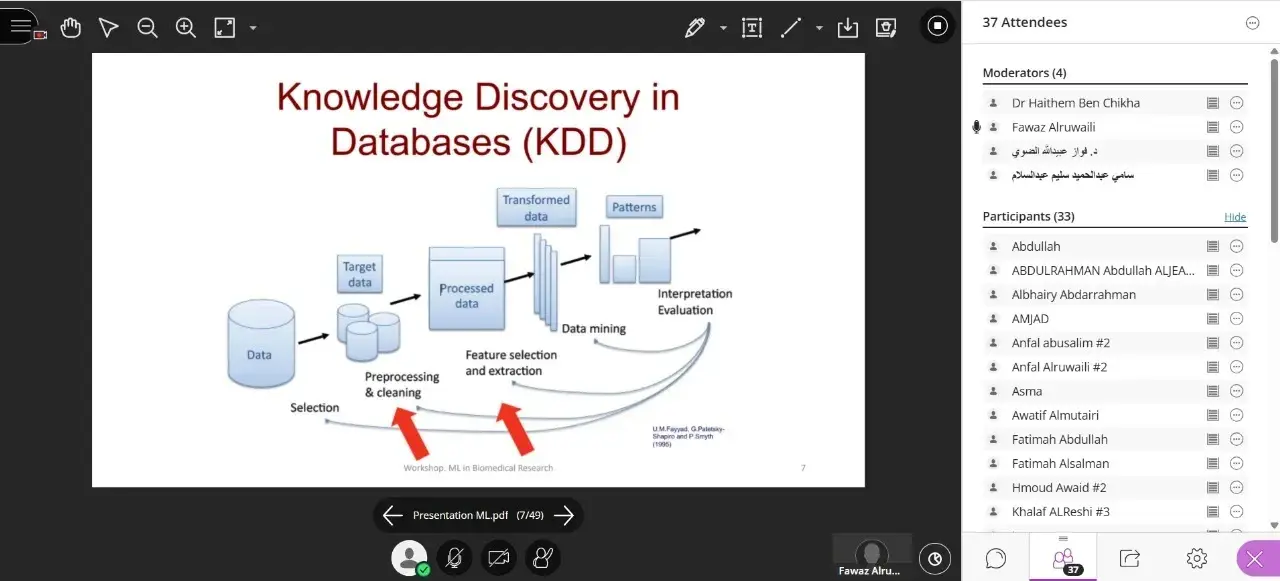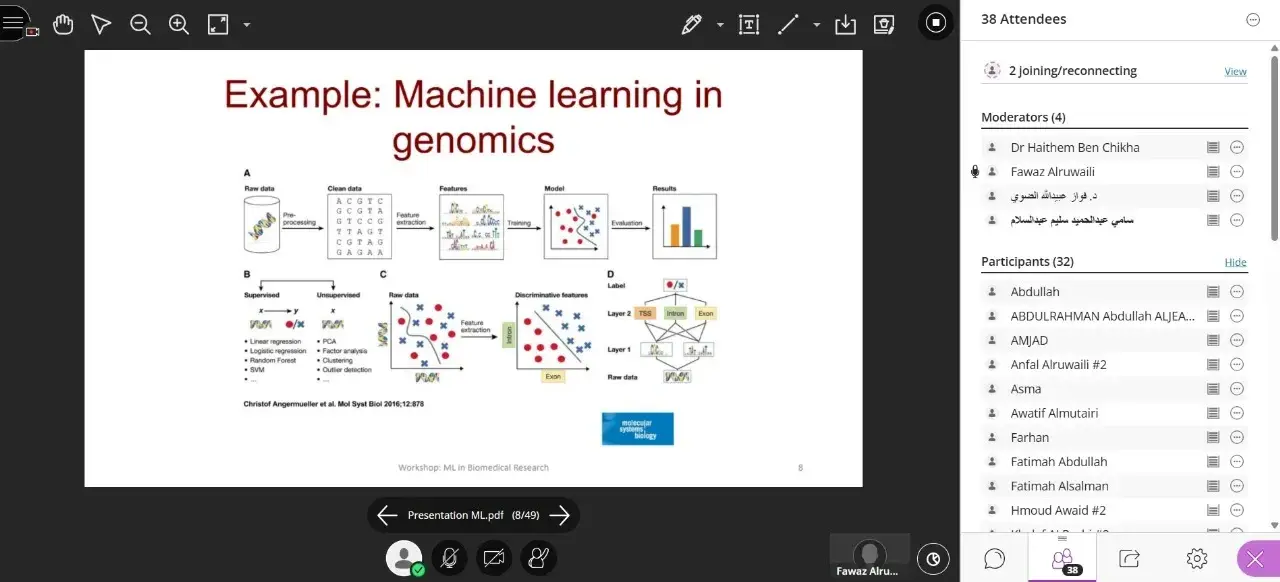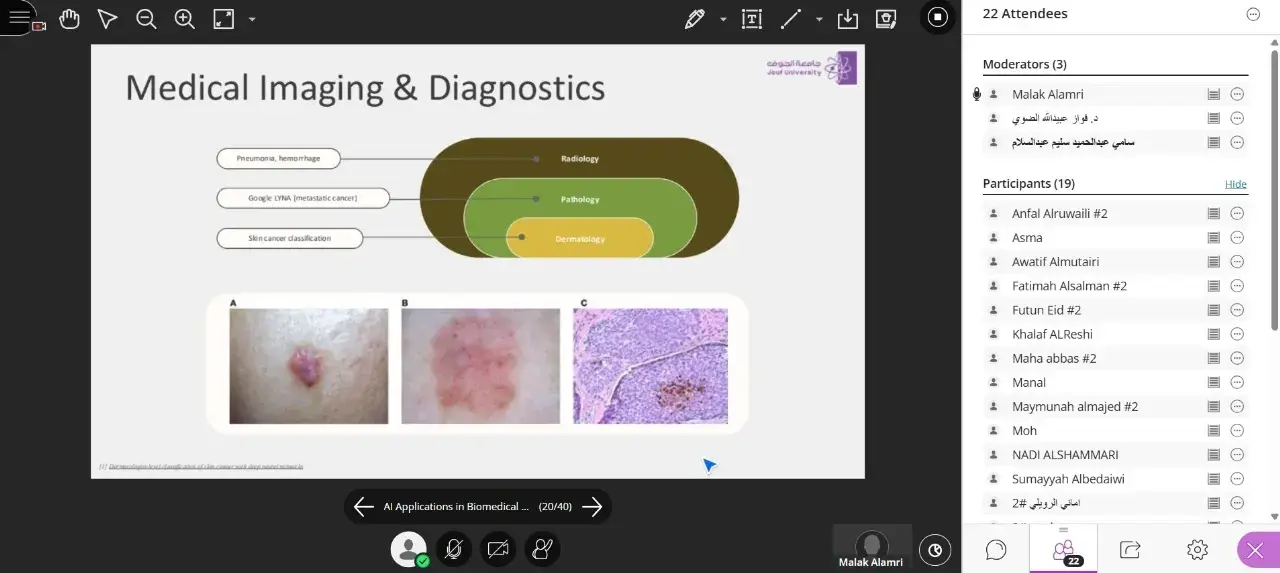Utilizing Artificial Intelligence for the Advancement of Medical Research
Under the supervision of Dr. Abdullah bin Faleh Al-Sarhani, Dean of the College, and as part of the College’s efforts to advance scientific research and its ongoing initiatives to develop postgraduate students’ skills and enhance the quality and efficiency of research through modern technologies, the College of Applied Medical Sciences, in collaboration with the College of Computer and Information Sciences, organized two specialized workshops on the use of Artificial Intelligence in Medical Research during the period October 6–7, 2025.
The first workshop, titled “Machine Learning in Biomedical Research,” was presented by Dr. Fawaz Jahem Alruwaili and Dr. Haitham Mohammed Bin Shaikha, while the second workshop, titled “AI Applications in Biomedical Research,” was delivered by Dr. Malak Zayed Al-Omari.
The workshops targeted postgraduate students in medical and health sciences who are interested in developing their research skills and employing artificial intelligence in their academic studies. They aimed to enhance the quality and efficiency of medical research by introducing participants to the latest technologies, enabling postgraduate students to understand the fundamentals and applications of artificial intelligence in scientific research, and encouraging critical thinking and innovation in integrating AI within research methodologies.


And the speacers addressed several key topics, including:
- An introduction to Machine Learning and its techniques.
- Methods of analyzing medical data using artificial intelligence.
- Practical examples of employing AI in disease diagnosis and research data analysis.
- An overview of AI tools and platforms used in the medical field.
conclusion
The two workshops witnessed active participation from postgraduate students, who showed great engagement with the presented content. The event was distinguished by the participants’ enthusiasm and scientific discussions, reflecting their growing interest in this vital and evolving field.
In conclusion, the workshops resulted in the following recommendations:
- Organize similar workshops on a regular basis to promote continuous learning and professional development.
- Offer advanced workshops focusing on the practical and programming aspects of artificial intelligence.
- Strengthen collaboration between relevant academic departments to establish joint training programs in medical artificial intelligence.
- Encourage students to apply the knowledge and skills they acquired in their upcoming research projects.





